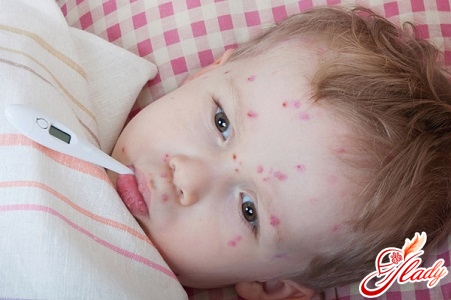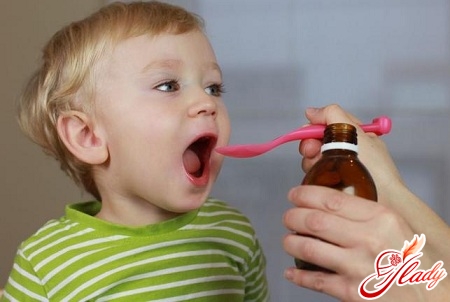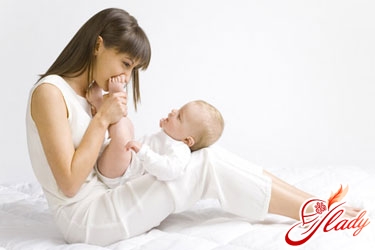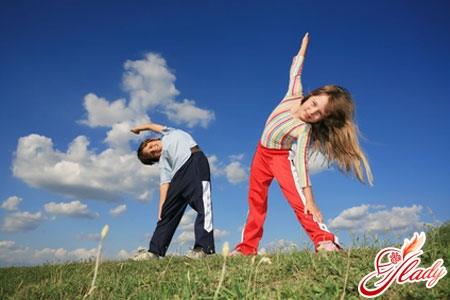
Herpes is a common infectious diseasea disease caused by the herpes simplex virus and characterized by rashes in the form of grouped blisters on the skin and mucous membranes. There are several types of this disease, but primary herpes is usually typical for children. Children in the first years of life have maternal immunity, so they rarely get herpes. But by the age of 3-4, they become more susceptible to the virus, and by the age of 5, 60-80% of children already have antibodies to it. 90% of the entire population are carriers of this disease. However, herpes is activated in the body only with weakened immunity, when the child gets a cold, some infectious disease, or experiences stress.

Forms, types and manifestations of childhood herpes
There are several forms of childhood herpes, 8 different types of viruses, namely:
- Herpes on the lips
Refers to the most famous herpes simplexType 1. It manifests itself in the appearance of several blisters on the upper or lower lip, characterized by general malaise and sometimes a slight fever. It is most often found in children under 2 years of age, but can also appear in people of any age, regardless of the season. This type of herpes is one of the least active reactions on the child's body, but, having appeared only once, it can return again with each cold and weakened immunity. That is why it is the most common type of herpes.
- Herpes on the body
Usually occurs in children aged 3 to 4. Small red blisters with liquid inside appear on the body, which should never be scratched, as this will cause severe itching and burning.
- Shingles Herpes
Refers to the herpes virus type 3 (chickenpox)smallpox). This is a type of virus that appears on the body of four- and five-year-old children. However, there are cases of this type of herpes in two-year-old children. With this disease, densely located red blisters appear on the body in places where nerves are located (for example, on the ribs, sides). The disease goes through 2 phases, the first of which appears as watery blisters, and the second - as dried crusts.
- Genital herpes
Very rarely it can appear in babies in the firstmonths of life. A child can become infected during childbirth if his mother has genital herpes. Red rashes appear on the mucous membrane of the genitals and inner thighs. Herpetic sore throat and stomatitis may be observed. This disease can lead to various complications: damage to the organs of hearing and vision, diseases of the internal organs, and subsequent development of defects. Herpes type 6 causes infantile roseola in children, which manifests itself in the form of spotted papular rashes of pink color. Children under 2 years of age are susceptible to this type of herpes. The disease begins with fever, then the temperature decreases within 3-6 days, after which an exanthema appears on the skin - spotted papular rashes 1-3 mm in size, which turn pale when pressed. This property is a distinctive feature of this type of herpes. Herpes on the body can persist for several days, or it can disappear after a few hours. The rash is usually localized on the neck, face and limbs. Herpes viruses of types 4, 5 and 6 cause infectious mononucleosis - an acute infectious disease that is characterized by sore throat, fever, enlarged lymph nodes, spleen, liver, lymphocytosis, the appearance of atypical mononuclear cells in the peripheral blood. One of the most common viruses of type 6 is cytomegalovirus. Children usually become infected with this virus in nurseries or kindergartens. It is transmitted only through direct contact with an infected patient. Children can also be infected with the virus during intrauterine development. The infection environment can be saliva, blood, urine and other biological substrates. In healthy children, cytomegalovirus is asymptomatic or accompanied by minor symptoms that disappear after a few days. Herpes viruses of types 6 and 7 can cause neonatal exanthema in infants during primary infection. Only a qualified specialist should diagnose the child's health condition.
Herpes in infants
This disease occurs much more frequently in infants.more difficult than in adults. Herpes is a very insidious infection that can cause severe damage to internal organs and the nervous system. When the organs of vision are affected, phlebothrombosis, keratitis, iridocyclitis, chorioretinitis occur; when the organs of hearing are affected, complications such as herpetic angina, sudden deafness and damage to the inner ear may occur. When the cardiovascular system is affected, myocarditis and atherosclerosis myocardiopathy occur. When the virus penetrates the central nervous system, encephalopathy, meningitis and damage to the nerve plexuses may occur. The herpes virus can also lead to schizophrenia and various depressive disorders. Complications such as urethritis, prostatitis, impaired reproductive function in men and endometritis, colpitis and chorionitis in women may also be observed.
Symptoms of herpes
Symptoms of childhood herpes may include:
- febrile condition, muscle pain, fatigue, irritability;
- burning, pain, tingling and itching at the site of future eruptions;
- the formation of ulcers and wounds at the site of rashes;
- the formation of sores in the mouth: on the gums, the inner part of the cheeks, the front part of the tongue, the throat and the sky;
- swelling and bleeding gums;
- enlargement of the lymph nodes of the neck, their soreness;
- defeat of the mucous throat with the formation of small ulcers and a grayish coating on the tonsils;
- pain when eating and drinking.
If the above symptoms appearyou should definitely consult a pediatrician to establish the correct diagnosis and prescribe treatment. The same symptoms can occur with rubella. Therefore, it is worth paying attention to other factors that are the main indicators of the disease, such as:
- febrile seizures - if the disease is not treated, epilepsy may develop in the future;
- gastrointestinal tract damage - abdominal pain, nausea, vomiting;
- headaches and sleep disorder;
- the appearance of a rash on the back of the child, gradually shifting throughout the body.
Herpes can be caused by various untreated medical instruments that come into contact with the child's body. The virus can also be transmitted by airborne droplets.
Treatment of herpes in children
Treatment of infection should be started immediately.when the first signs of the disease appear. The duration and success of the treatment depend on this. An advanced infection can become chronic or recurrent and increase the likelihood of various complications. Antiviral drugs, interferons and immunostimulants are used to treat the herpes virus. Treatment of herpes in children is aimed at suppressing the activity of the virus and minimizing the manifestation of symptoms. For this, various antiviral agents are used - tablets and ointments that relieve pain and itching. In addition, it is necessary to take antipyretics when the temperature rises and drink plenty of fluids. One of the antiviral drugs is acyclovir. Interferons destroy viruses and prevent them from multiplying uncontrollably. They are used both in tablet form and in the form of suppositories. Immunostimulating drugs prevent the virus from affecting new areas of the mucous membranes and internal organs, contributing to a more effective fight against the virus. Such drugs as immunal, arpetol, groprinosin are used. If there is herpes in the oral cavity, it is necessary to ensure that the child does not injure the herpes sores. Do not give him hard and hot food. With constant injury to the wounds, the healing process can last for 2 weeks or more, so parents need to monitor this process. If the disease recurs quite often, then it is necessary to consult a specialist immunologist who will advise how to strengthen the weakened immunity of the child. In addition, for children, herpes treatment must be prescribed and monitored by a pediatrician, since only a specialist can correctly calculate the dosage of the drug that is safe for the child's body. Once in the child's body, the herpes virus remains there for life, sometimes worsening and causing discomfort. Therefore, parents need to help their child, strictly following the recommendations and instructions of the pediatrician. Particular attention should be paid to maintaining personal hygiene. The child should have an individual towel, washcloth, soap. It is necessary to wash hands more often. In addition, it is necessary to increase the child's immunity, eat right and take vitamins in the autumn-spring period. It is impossible to cure herpes completely, since this disease remains in the body for life. But if you maintain the child's immunity, lead a healthy lifestyle and observe the rules of personal hygiene, the disease will not return for a long time.









